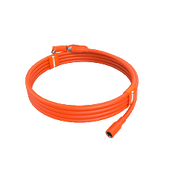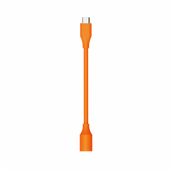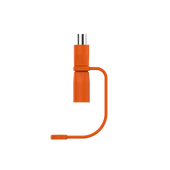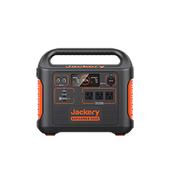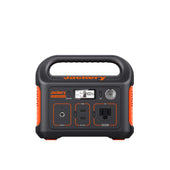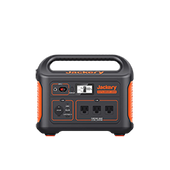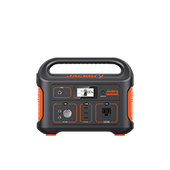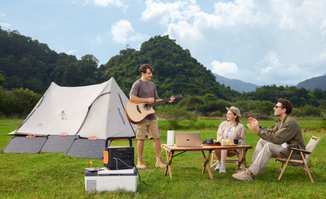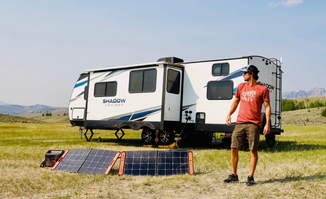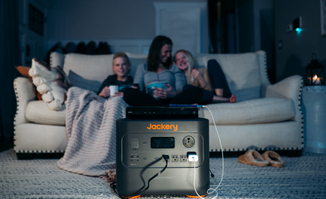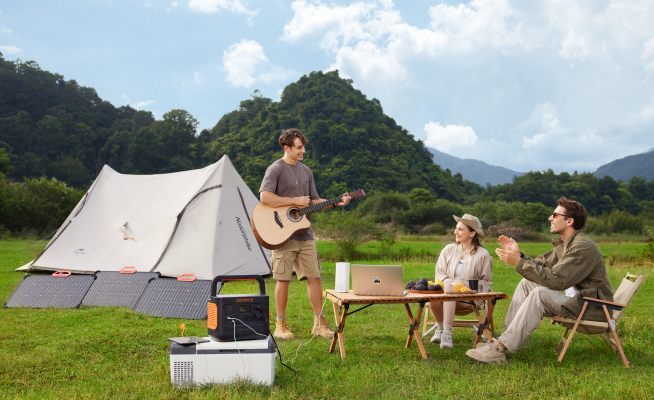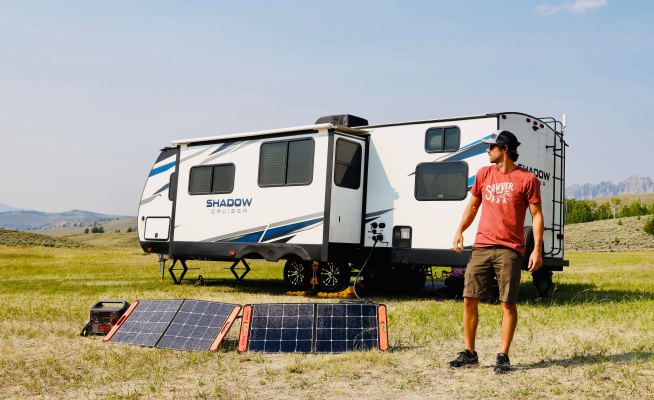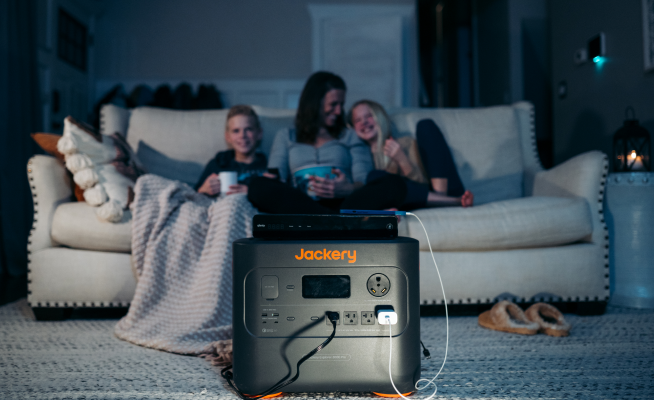The Ultimate Guide to Brownout Vs. Blackout
Power outages are common, and a bad storm can knock out all the power in your home area. When the power suddenly goes out due to natural calamities or a utility company's sudden failure, it leads to electricity blackouts that can last for hours, or days.
But what is brownout? Is it similar to a blackout? Or are there any differences between brownouts vs. blackouts?

Blackout and brownout indicate sudden loss of power, but they are slightly different. When a power blackout refers to complete power loss, a brownout represents a partial loss of power. It means you'll receive electricity during a brownout, although the voltage will be low.
The best option to stay warm and comfortable during power outages is by using Jackery Solar Generators. They can charge all your appliances and act as a reliable backup source.
In this article, we'll discuss brownouts and blackouts in detail and how solar generators save your day during such instances.
What Is A Brownout?

First, let us understand – what a brownout is.
Perhaps as common as blackouts, brownouts are partial power disruptions in an area. It is a temporary interlude planned by your utility provider when electricity is received at low voltage. Instead of normal voltage, you will receive electricity at a voltage reduced by 10-25% during a brownout.
Although you can run your electrical appliances during the on-purpose electricity cuts, it is not advised.
Some tell-tale signs of brownout include flickering lights, turning on and off electrical appliances, etc.
These short-term electricity cuts avoid overloading the power grid during high electricity demand. The main difference between a blackout and a brownout is that the latter does not lead to a complete power shutdown.
What Causes A Brownout?
Brownouts are typically caused when there are fluctuations in electricity supply and demand. They are planned in advance by the utility grid to prevent long-term power outages in the future. Some primary causes of a brownout include:
- High Energy Demand: When the demand for electricity rises, the utility grid company declares a brownout. This usually happens when there is an increased usage of electric heaters during winter, causing additional stress on the power grid.
- Severe Weather Conditions: Natural calamities like storms, high winds, lightning, etc., can damage power lines and transformers. This eventually leads to a temporary power outage.
- Electricity Grid Damage: Failing of old equipment, solar flares, inadequate cyberattacks, etc., are all possibilities for voltage reduction.
What Is A Blackout?

Unlike brownouts, blackouts are unplanned and complete power loss in an area. It is a sudden power cut and can last for an indefinite amount of time
As it is usually caused due to an unexpected and uncontrollable situation, there's no way to know when the power will return.
What Causes A Blackout?
Several factors can be the reason for a sudden blackout. Here is the list of what can cause a blackout.
- Ice build-up on power lines.
- Damaged power lines or transformers.
- Unpredictable natural calamities like storms, lightning strikes, etc.
- A sudden spike in power demand pushes the grid past its limits.
What Is A Rolling Blackout?
The term "rolling blackout" is a more deliberate process when electrical utilities purposefully cut power. The main aim of a rolling blackout is to lower the strain on the overtaxed electrical grids.
Grid regulators typically warn the residents regarding temporary power cuts. This helps people prepare for a power outage and avoid extended power outages in the long run. Usually, the rolling blackouts last for a few hours, after which the electricity is restored.
Here are a few ways to prepare for a rolling blackout.
- Stock up on essentials like necessary medicines, food, water, etc.
- Keep flashlights, batteries, and other non-flammable light sources handy.
- Unplug all your electrical devices before the rolling blackout to protect them from power surges.
- Invest in a portable power generator that can charge all your small and large electrical appliances.
Brownout Vs. Blackout
As stated above, blackout and brownout are different. In a brownout, you'll receive electricity at a low voltage, whereas your home area will lose full power during a blackout. Here are some major differences between brownouts and blackouts.
- Both brownouts and blackouts are the after-effects of increased electricity demand. Blackouts are sudden and complete shutdowns of power due to severe weather. Meanwhile, brownouts are temporary power losses and may be intentional or unintentional.
- Brownouts are dangerous for appliances as sudden voltage fluctuations can harm them. In a blackout, this doesn't happen, although the danger of a sudden power spike still exists.
- Blackout can last indefinitely, from hours to days, whereas brownout typically comes with a warning and happens during peak electricity demands.
Brownout Vs. Voltage Sag
Both brownouts and voltage sags are under-voltage events.
Voltage sags are short-period interruptions when voltages become lower than the standard voltage line. Usually, when sag happens, an Uninterruptible Power Supply (UPS) unit connected to the appliance will click and continue to work.
Unlike sags, brownouts are long-term low-voltage instances that may last for hours, days. Sags rarely affect electronic devices; however, brownouts usually cause appliances like computers to reboot.
Brownout Vs. Power Surge
A power surge is one example of over-voltage conditions. It can be pretty harmful to your electronic devices. They are stronger than power spikes and brownouts in terms of volts.
Rain storms and lightning strikes are two leading causes of power surges. On the contrary, a brownout is an under-voltage condition caused by an electrical grid.
What Is The Power Surge?
A power surge is a little complex term, as it is further categorized into internal and external surges.
Let us elaborate on the power surge further.
A power surge is a sudden rise in voltage, typically when it crosses 110% over a short period. Lightning strikes, power outages, etc., can cause a sudden spike in power.
- Surges in Internal Power
Internal power surges occur dozens of times throughout the day. They account for over 50% of all home power surges. During this power surge, the motorized devices start up and shut down.
- Surges in External Power
Some most common causes of an external power surge are damaged power lines, animals getting into the transformer, or lightning strikes at the utility equipment. External power surges can also happen when power is restored after brownouts or blackouts.
How To Protect From Brownout or Blackout?

First of all, you should not panic during a brownout or blackout. It's important to understand "how to protect your appliances from brownouts or blackouts" to keep you, your family, and your home safe.
Some simple steps to prepare for a brownout or blackout are as follows:
Unplug all Devices
Brownouts cause low voltage, and you can run a few low-power-consuming appliances during the event. However, it is unsafe to run devices on low voltage as it can damage the sensors and electric motors of the electrical device. The best way to protect your home appliances is by unplugging them all.
Sign up for Alerts
Once the power goes out, it is advised to contact the local utility company. Sign up for alerts through the emergency alert system to know when the power is restored. If the power is off due to natural calamities like storms, consider having a battery-powered radio to get the updates.
Keep your Phone Charged
Try not to spend more time on the phone; consider the free time as your family time. It's worth noting that having a fully charged phone will help you get updates from the electricity grid and will keep you connected with your loved ones. Also, consider having a portable power station that will help you charge appliances like smartphones, laptops, etc., in case of an emergency or unplanned power outage.
Avoid Power Overconsumption
The main reason for brownouts is the overconsumption of power. That said, you should reduce power consumption as much as possible by reducing the usage of electronic devices. Not only will it enable you to reduce your energy consumption, but it will also extend the lifetime of your electronic devices.
Use Flashlights
A full blackout can knock out all the electricity in your home. In such cases, you might not see anything. Instead of using flammable candles that can cause a fire hazard, use battery-powered devices.
Use a Portable Power Generator
All your electrical appliances will stop working when a brownout, rolling blackout, or blackout happens. It includes the main devices of your home – the refrigerator, AC, electric blankets, etc. This means all the food stored in the fridge will eventually spoil.
You'll no longer be able to keep your space warm with space heaters or electric blankets. The best way to deal with such a situation is to use a portable power generator. Jackery Solar Generator is a lightweight, compact power station that helps you charge all your essential devices using solar energy.
Avoid Opening Refrigerator
When you're not using the refrigerator, it's best to keep it closed. This will help you to trap the cool air in the fridge and keep your food fresh for a little longer. Besides, in case of a long-term power outage, eat perishable food first to avoid food wastage and save non-perishable food for later use.
Stay Away from Power Lines
Sudden power outages are sometimes caused due to fallen trees, storms, or severe weather conditions. In such cases, it's better to stay away from the power lines and call 911 for help.
Don't Run the Generator In-House
Undoubtedly, a backup supply source can be a lifesaver in such a situation. However, gas generators produce carbon monoxide when they work. As a result, they can be dangerous if used in-house.
Solar generators are a reliable power source for homeowners wanting an in-house backup solution. They emit no toxic elements or fumes, making them safe for indoor use.
Who Should You Call When Brownout?
During blackouts and brownouts, your first step is to safeguard your appliances. Next, you need to check with your local utility to confirm if the issue is coming from the grid. Ask them how long the blackout will last to prepare for the situation.
Remember, during such occurrences, you must keep in touch with your electricity grid. Sign up with the electricity grid's alert system if they offer email or text service.
On the contrary, if everything is normal and confirmed by the local utility, the brownout conditions may result from in-house electrical problems. In this case, you should contact an electrician for emergency service.
What Devices Are Vulnerable To Brownout?
Home appliances are vulnerable to power failures, whether a brownout or blackout. Some of them include the following:

- Refrigerators:The compressor motor can burn out during low-voltage situations. Additionally, the compressor motor can be damaged when the power surges back on.
- Ovens: Power surges can damage the diodes inside the appliances like microwave ovens.
- Air Conditioner: Sags and power surges can affect the appliance like an air conditioner, as it uses a lot of power.
- Computers:Delicate and expensive devices can be damaged by surges and fluctuations.
- TVs:The high-tech devices are equipped with sensitive electronics. They can be damaged if operated during low voltages.
- Coffee Machine/Toaster: These units draw in a lot of power and electricity and are easily destroyed in sags and power surges.
- Washer/Dryer: Many washing machines and dryers have sensitive electronics and are vulnerable to low-voltage situations.
Generally, any appliance connected to a power strip or an outlet is prone to damage. However, devices that have electric motors and electronic components are the most vulnerable to low voltage.
- Electronic Components: Such appliances suffer damage due to low voltage. Even if no damage is caused to the electrical appliances, a brownout can lead to incorrect operations.
- Electric Motors: These motors are susceptible to low voltage, as they draw more heat and current. When electric motors constantly operate on low voltage, their service life reduces due to fluctuations.
In the event of a blackout and brownout, it's best to unplug these devices and prevent the effect of the power surge.
Your Best Power Backup With Jackery

Jackery Solar Generators consist of Explorer Portable Power Station and SolarSaga Solar Panels. With minimal setup, the solar generator harnesses the sunlight and converts it to electricity.
The solar energy in the form of electricity is then stored in portable power stations to charge all your appliances. As they operate on solar energy, they are safe, convenient, and practical when the power goes off. Some of the best Jackery Solar Generators for Home picks include:
Jackery Solar Generator 2000 Pro
The Jackery Solar Generator 2000 Pro delivers the fastest solar recharging and powers most appliances, including mini coolers, refrigerators, e-bikes, pellet smokers, air conditioners, etc. With 6 SolarSaga 200W solar panels, the power station can be fully charged within 2.5 hours. The first-rate lithium battery houses two chips and four temperature core detectors for dual battery protection. Additionally, the product operates less than 53 dB without emitting toxic gases.
|
Products |
Capacity |
Input & Output Ports |
Appliances Charging Time |
|
Jackery Solar Generator 2000 Pro (Explorer 2000 Pro + SolarSaga 200W) |
2160Wh |
AC Output, USB-A Output, USB-C Output, Car Port, AC Input, DC Input. |
|
Jackery Solar Generator 1500
Next on the list is Jackery Solar Generator 1500. It is a portable, lightweight, and safe solar power station that makes it perfect for camping, hiking, power outages, and other activities. The Solarpeak technology (updated MPPT technology) maximizes power extraction under all conditions and can charge up to 85% of your appliances. Additionally, you can start the solar generator with a single button, making it easy to use.
|
Products |
Capacity |
Input & Output Ports |
Appliances Charging Time |
|
Jackery Solar Generator 1500(Explorer 1500 + SolarSaga 100W) |
1534 Wh |
AC Output, USB-A Output, Quick Charge 3.0 Output, USB-C Output, Car Output, DC Input
|
|
Jackery Solar Generator 1000 Pro
Jackery Solar Generator 1000 Pro has a long lifespan of 1000 charge cycles. The solar power generator can power all essential appliances, including laptops, drones, iPads, etc. It comes with heat dissipation, top shock-resistant (level 9), high-temperature protection, and a vehicle-grade battery management system that makes the Jackery Solar Generator 1000 Pro safe to use. The foldable handle and lightweight nature make the solar power station easy to carry for outdoor activities.
|
Products |
Capacity |
Input & Output Ports |
Appliances Charging Time |
|
Jackery Solar Generator 1000 Pro (Explorer 1000 Pro + SolarSaga 80W/200W) |
1002 Wh |
AC Output, USB-A Output, USB-C Output, Car Port, AC Input, DC Input |
|
Brownout Vs. Blackout FAQs
Here are a few common questions to help you understand what brownouts and blackouts can do and how to prepare your house for the next power outage.
1. Can a brownout damage a refrigerator?
Yes. A brownout can quickly damage an electrical appliance like a refrigerator. It is a temporary voltage difference that alters the functioning of the appliance. Your refrigerator will not function properly when the voltage becomes lower than usual. On the other hand, when the voltage becomes higher, the delicate circuits in your fridge get fired.
2. Do unplugging things save money?
Yes. When you unplug the electrical devices, you save money. Most appliances consume a few energy watt-hours when off; this use adds up on your average power bill at month's end.
3. How to protect your home from a brownout?
Brownouts do happen — but a few simple steps can help you avoid damage caused to electrical appliances.
- Connect critical devices and appliances to uninterruptible power supplies (UPS). These supplies are designed to deliver emergency power to the devices when low voltage.
- Invest in a portable solar power station like Jackery Solar Generator that will keep your appliances operating safely during brownouts or blackouts.
- Unplug the devices like computers, televisions, and other expensive appliances, before power restoration. Once the power is restored, wait 10 minutes before plugging them back.
4. What are the benefits of a portable power generator in a brownout or blackout?
Brownouts and blackouts are unpredictable. When they happen, they can affect your life for days. This is where investment in portable power generators can help you. Jackery Solar Generator consists of SolarSaga Solar Panels that convert sunlight into usable electricity and Explorer Portable Power Station that stores the electricity and powers your appliances. Some benefits of a portable power generator in a brownout or blackout include:
- Safe and easy to use
- Emits no toxins and causes no pollution
- Quiet
- Rechargeable and involves no maintenance

Final Thoughts
Brownouts and blackouts are temporary power outages that can cause fluctuations in power.
Now that you know the differences between brownouts vs. blackouts, it's time to prepare for it. The only safeguard against brownouts or blackouts is purchasing a reliable power backup solution.
Jackery Solar Generator 2000 Pro is an excellent portable power generator for home that can charge all your small and large appliances. The home backup system will reduce the reliance on the electricity grid and acts as a power solution during brownouts, blackouts, or rolling blackouts.
Subscribe to Jackery's newsletter to read how-to guides and to get product deals, promotions, and exclusive offers.
Disclaimer:
The runtime mentioned for appliances powered by Jackery is for reference only. Actual runtime may vary under different conditions. Please refer to real-world performance for accurate results.











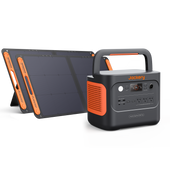

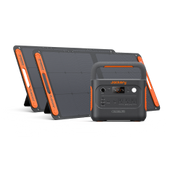
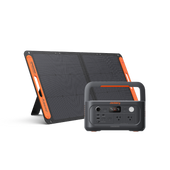
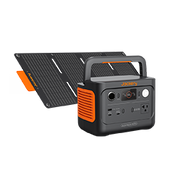
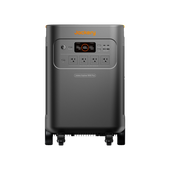

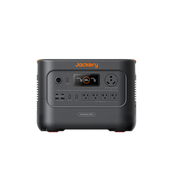
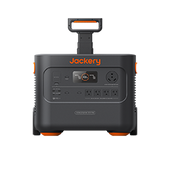
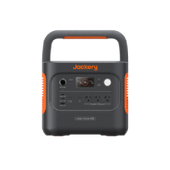
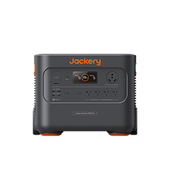

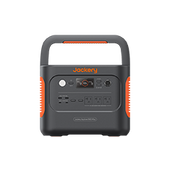
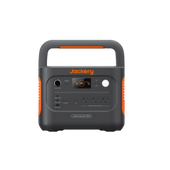
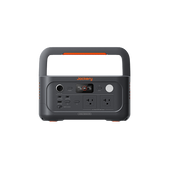

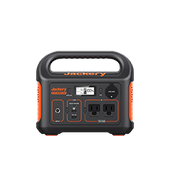
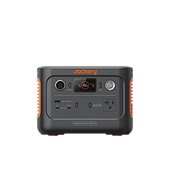
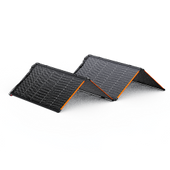
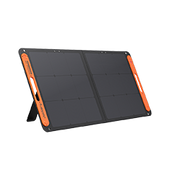


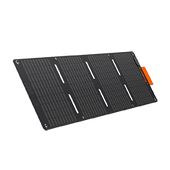

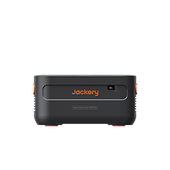
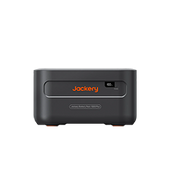
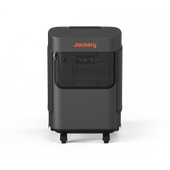


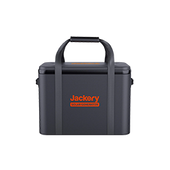

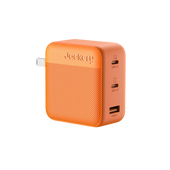

![[Add-on] Jackery Manual Transfer Switch for Explorer 5000 Plus](http://ca.jackery.com/cdn/shop/files/add-on-jackery-manual-transfer-switch-for-5000-plus-240V.webp?v=1757043692&width=170)
